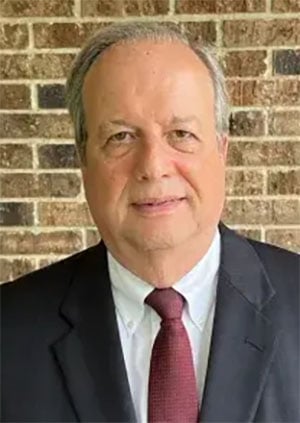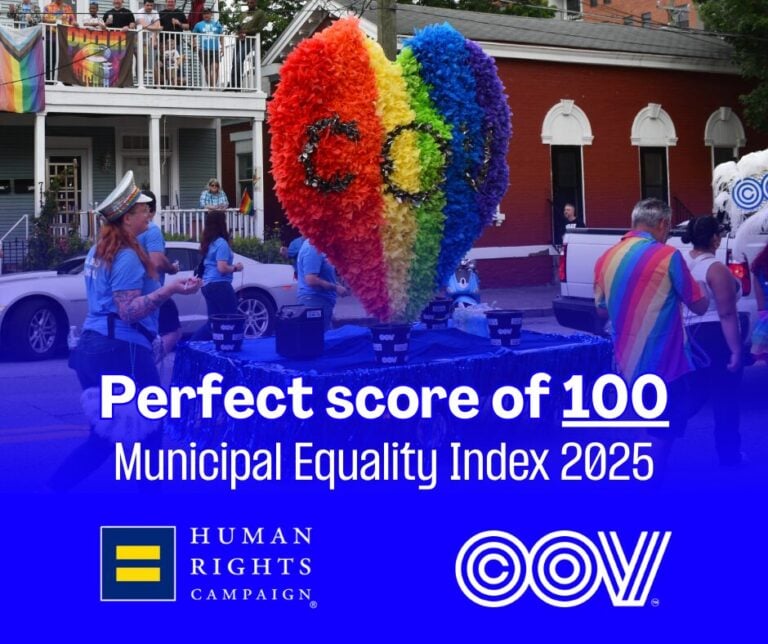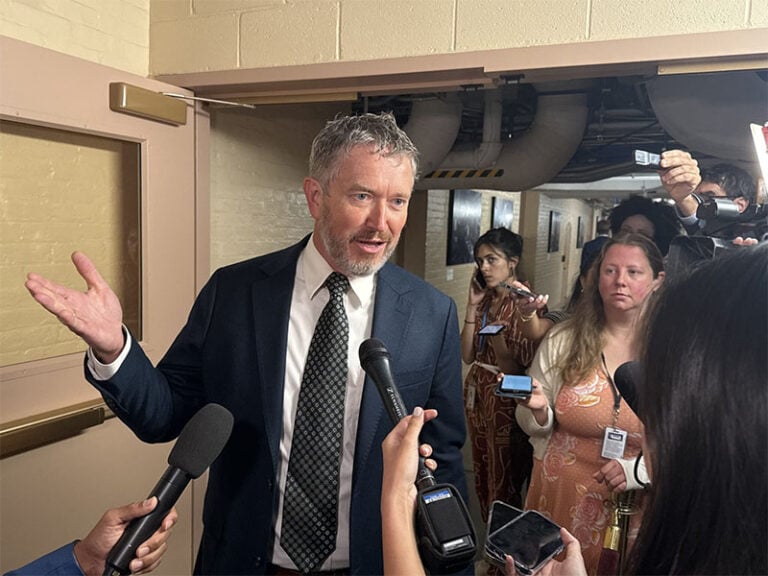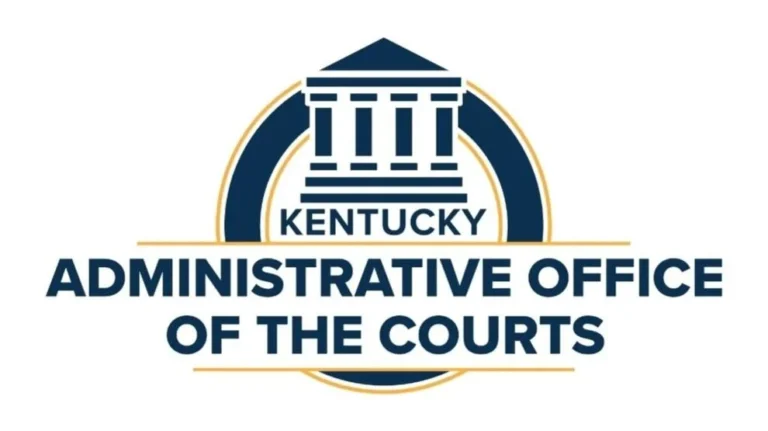Editor’s Note: Final of a four-part series on Kentucky’s Parole Board
By R.G. Dunlop
Special to NKyTribune
Kentucky’s parole system is, like those in many other states, complicated. Details of it seem to be not well known except to those involved with it, such as inmates’ attorneys and their families.
When a reporter asked six criminal-justice authorities how much they thought the public knows about Kentucky’s parole system and its mechanics, their unanimous response was: very little.

“I don’t believe the public is aware of how the board functions, how (board members) are chosen, or what factors into the board’s decision-making,” said former state Sen. Whitney Westerfield of Fruit Hill in Western Kentucky, who chaired the Senate Judiciary Committee.
“I would venture to say the vast majority of the legislature is just as ignorant to those details. Only those of us with criminal law experience of some variety have knowledge of the board and its functions . . .If my life depended on it I couldn’t tell you the names of every member of the board myself, so I know my wife and mother have no idea.”
Dave Stengel, a former state legislator and Jefferson Commonwealth’s Attorney, said he thinks the general public “has next to no knowledge of the parole system. I was in prosecution for 30-plus years and still don’t know much about it.
“I would venture 99 percent of the public assumes they are a bunch of bleeding heart liberals just waiting to release the worst offender they can find.”
Judah Schept, a professor in the School of Justice Studies at Eastern Kentucky University, said: “I don’t think the public knows much about parole at all. Parole doesn’t receive the same kind of popular attention as police, incarceration, court processes, criminal investigations, etc.”

Ed Monahan, former head of the state Department of Public Advocacy, said he thinks most people believe that “everyone is paroled when eligible,” and that “paroling a person is never a good decision.”
Ernie Lewis, another former DPA director, said he thinks the general public “has been ill informed about parole in general, its purpose, its salutary effects, for as long as I have been a lawyer” — nearly 50 years. “The public believes that persons sentenced to prison get out without serving a significant portion of the sentence.
“The intricacies of the parole system are difficult to follow for a member of the bar, much less than the general public. We have very long sentences in Kentucky. Parole is often denied, and many prisoners are served out.
“The stories of persons denied parole, and the despair that results from that denial, are seldom told or understood.”
Among those likely in despair: Lance Conn.
Previous, Part 1: Life-sentences pose serious financial challenges for prisons facing aging inmate population
Previous, Part 2: Kentucky’s parole board functions are complicated, and little-known to public
Previous, Part 3: Cost of incarceration may outweigh risk certain inmates would pose if granted release
How Kentucky’s Parole board system works
By R.G. Dunlop
Special to NKyTribune
“The mission of the Kentucky Parole Board is to make decisions that maintain a delicate balance between public safety, victim rights, reintegration of the offender and recidivism. We will achieve this important balance by application of our core values of knowledge, experience, and integrity.” — From the Kentucky Department of Corrections’ website
Courts in Kentucky and elsewhere have long held that parole is a privilege, not a right, and eligibility for parole is no guarantee that an inmate will be recommended for release.
The Kentucky Parole Board conducts thousands of hearings each year to determine which convicted felons should be discharged back into society or remain locked up.
Here’s how the system works:
To serve on the parole board, a prospective member must have at least five years of experience in fields including corrections, law enforcement, medicine, and social work, or have been a board member for at least five years previously.
The governor appoints board members from a list of three names provided by the Kentucky State Corrections Commission. Members of the nine-member board must then be then confirmed by the state senate. All board members are full-time state employees and serve four-year terms.
Seven of the nine current board members are paid the same salary: $85,964. Board Chair Ladeidra Jones, who formerly worked as a probation and parole officer and as a substance-abuse counselor, receives $94,918. The other board member, Gregory Leist, a former probation and parole officer who was appointed to the board in January, is paid $81,871.
In addition to Jones and Leist, the other board members are:
Chris Deglow, also a former probation and parole officer; Krissie Fields, a former Barren County circuit court clerk; Cyndi Heddleston, a former probation and parole officer; Shawn Helbig, previously a Bowling Green police officer; Michael James, who spent 23 years with the Jefferson County sheriff’s office; Sherri Lathan, a one-time state correctional officer and probation and parole officer; and Leigh Wiggins, who formerly worked a deputy jailer and substance abuse counselor at the Daviess County Detention Center.
An inmate’s initial parole eligibility date is calculated by the state Department of Corrections. Parole decisions are made by panels consisting of between three and six board members. If all panel members do not agree whether or not to discharge an inmate, the case is referred to the full board.
Only inmates serving time for Class A or B felonies, the most serious criminal offenses, are guaranteed face-to-face hearings to field questions from board members and make their case for release.
Inmates incarcerated for Class C felonies that are non-violent and don’t involve sex offenses, and all Class D felonies, do not meet face-to-face with the board. Instead, their cases are addressed by “file reviews,” involving an assessment by board members of documents pertaining to each inmate.
Parole board decisions are supposed to be based on a variety of factors including the seriousness of the offense, the inmate’s prior criminal record and history of parole and/or probation violations, institutional conduct, history of alcohol and drug involvement, education, health, and “history of deviant behavior.”
But in an April 2024 Kentucky Supreme Court opinion, Justice Michelle Keller noted that parole board policy only requires “application of one of the listed factors.”
“An inmate could be forever denied any hope of life outside the prison walls based on a finding of only one of the listed considerations and after only a review of a risk and needs assessment,” Keller wrote in her opinion. “His life could forever be altered in a nearly irrevocable way based solely on, for example, his lack of employment history, or lack of education, or drug use which could date back decades.”
Only inmates may actively participate in parole board hearings. Members of the public may attend them, but for “observation only,” according to the parole board’s website, which also states: “You will not be allowed to speak at any time.”
Someone wanting to attend an inmate’s face-to-face hearing must contact the institution where the inmate is housed and make their request seven days prior to the hearing date. File reviews are not open to the public
Those who want to express support for inmates must do so through written correspondence to the board. The correspondence is then placed in the inmate’s file and made available to the board. An inmate whose case is assessed via a file review also can submit written information to the board.
In addition, the board can schedule a hearing to allow crime victims or their family members to discuss the effects of the offense on them. Some criminal-justice authorities argue that neither victims nor their family members should be part of the parole process, since they likely have little or no knowledge of the defendant’s recent history.
This reporter listened to audio recordings of 15 parole board hearings obtained from the state Department of Corrections under the Kentucky Open Records act. Most of the hearings, which were conducted in June 2024, lasted between 25 and 30 minutes. Two board members participated in each hearing, though just one board member usually did most of the questioning of the inmate.
(State law has since been amended to require a minimum of three board members at each parole hearing.)
Dialogue among inmates and board members during the 15 hearings was uniformly cordial, even when the inmate was informed that he was being denied parole. During the hearings, inmates responded to board members’ questions about such things as details of their crime, their record and accomplishments while incarcerated, and what they planned to do if released from prison.
An inmate told the two board members who had just denied him parole for nine months, “I appreciate you trying to help me here, and I’m going to come back up with everything you’ve asked me to do. I promise you that.”
Board members sometimes offered inmates unsolicited advice, including:
“Quit playing games with your life.”
“Don’t take the easy way out.”
“Anything doing right for a long time is worth fighting for.”
“Take the high road.”
“Go forth and do good,”
An inmate battling a drug problem was told by a board member: “You’re 45 years old. When are you going to stop doing this? We want to help you; when are you going to help yourself?”
Inmates also received supportive comments from the board members, such as:
“I wish you the best, I think you can do great things.”
“You’ve put a lot of work in and have shown a lot of insight into what you need to do.”
“You can do this.”
“We wish you well, man.”
“You have a lot of promise. I don’t want to see you back before this board. I want to see you doing great, which I know is in you, ok?”
In one exchange involving board member Chris Deglow and inmate Paul Blevins, Blevins said: “I want to thank both of you today for givin’ me some good advice.”
Deglow replied, “You don’t have to thank me other than goin’ out and livin’ a good life, man.”
“That’s what I want to do, sir,” said Blevins, who was granted parole.
Once the board conducts a hearing with an inmate or does a file review, it has three options:
Grant parole; defer parole for a specific number of months before the inmate’s case is reviewed again; or impose a “serve-out,” which means the inmate must remain in prison until completion of his or her court-imposed sentence.
If the board makes a decision at a face-to-face hearing, the inmate typically is informed of it at the conclusion of the hearing. Following a file review, a copy of the board’s decision is sent to the institution where the inmate is housed, where staff are responsible for providing the inmate with notice of the board’s decision.
Inmates are free to request reconsideration of a parole board decision. But Justice Keller’s opinion said that process “leaves much to be desired.” The board will review its decision only if it finds there is “substantiated” evidence of misconduct by a board member, a “significant procedural error” by a board member, or “significant new evidence that was not available at the inmate’s hearing.”
Inmates released from custody following a parole board decision are subjected to standard conditions imposed on all offenders under supervision. The board also can apply special conditions to a specific inmate, such as having no contact with the victim or victim’s family; staying out of a specific county while on parole; or completing a substance-abuse program.
Allegations of a parole violation can be reviewed by an administrative law judge, and probable cause of a violation is referred to the board for a revocation hearing. The board then decides whether or not to rescind the inmate’s parole.






















